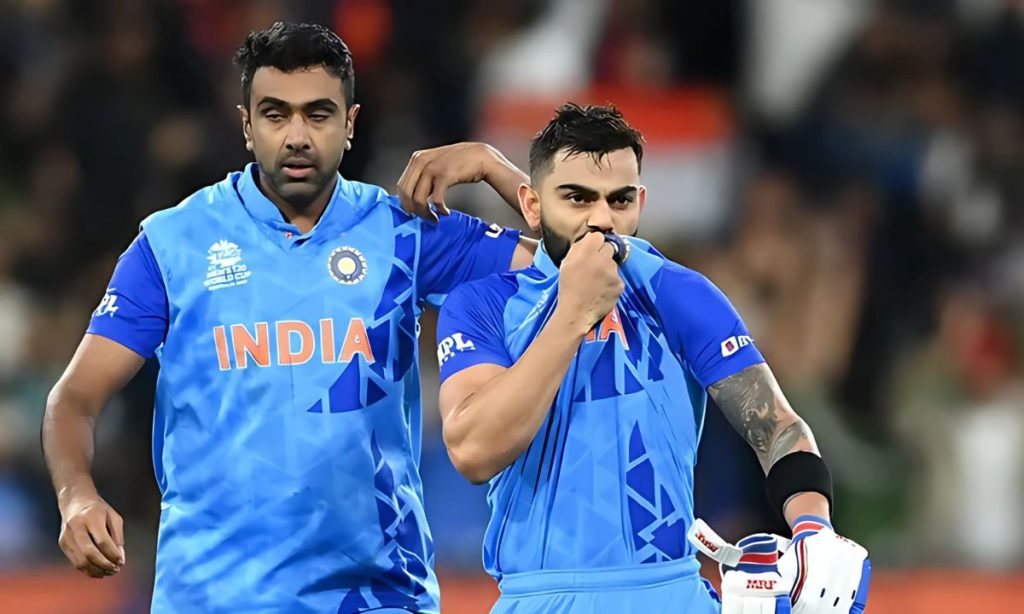In the glittering world of Indian cricket, where players are often elevated to demigod status, one voice stands out with refreshing candor.
Ravichandran Ashwin, a veteran off-spinner known for his outspoken nature and analytical mind, has once again stirred the cricket ecosystem with his unfiltered perspective on the perils of superstardom.
His recent comments have sparked a crucial conversation about the intersection of sport, celebrity culture, and authentic athletic achievement in Indian cricket.
The Ashwin Perspective: Normalizing Cricket’s Human Side
Speaking candidly on his YouTube channel ‘Ash Ki Baat’, Ashwin delivered a powerful message that cuts through the glamorous veneer of modern cricket.
“We must not encourage this superstardom and super celebrities within the Indian cricket team,” he proclaimed, challenging the deeply ingrained culture of hero worship that has become increasingly prevalent in recent years.
His words carry the weight of experience, coming from someone who has witnessed the transformation of cricket from a sport to a spectacle firsthand.
Breaking Down the Celebrity Myth
Ashwin’s critique goes beyond mere words, delving deep into the psychological and social implications of cricket’s celebrity culture.
He argues that cricketers are, first and foremost, sportspersons – not actors or larger-than-life icons. His message is clear: achievements should be celebrated, but not at the cost of losing one’s relatability.
The veteran spinner emphasizes that this perspective shift is crucial for both the players’ mental well-being and the sport’s long-term health.
“We are sportspersons, and we must be someone that the common people should resonate with, and can compare themselves with.”
The Danger of Excessive Glorification
Impact on Player Mentality
When players like Rohit Sharma or Virat Kohli are treated as demigods, it creates an unrealistic expectation that can be detrimental to both the players and the sport. Ashwin suggests that hitting another century should be “business as usual” – a professional milestone rather than a spectacle that further inflates their celebrity status. This constant elevation of normal sporting achievements to extraordinary feats can create unnecessary pressure and distract from the fundamental aspects of the game.
Connecting with the Grassroots
The veteran spinner emphasizes the importance of remaining grounded, suggesting that this connection with reality is vital for the sport’s grassroots development. By normalizing achievements, cricketers can maintain a genuine connection with fans who see themselves reflected in these athletes’ journeys. This approach, Ashwin believes, could inspire more young talents to pursue cricket with realistic expectations and a healthy mindset.
Beyond Celebrity: A Tactical Perspective
Interestingly, Ashwin’s critique extends to the team’s tactical approach, demonstrating how the celebrity culture can sometimes overshadow practical cricketing decisions. He raised eyebrows with his comments about the upcoming Champions Trophy, questioning the selection of five spinners for a tournament in Dubai. His analysis shows how team composition decisions should be based on strategic needs rather than star power.
Team Composition Insights
“Five spinners in Dubai? I don’t know. I think we are one spinner too many if not two,” Ashwin candidly remarked. His analysis highlights the delicate balance between star power and strategic team composition, suggesting that sometimes the allure of including celebrated players might overshadow tactical wisdom. This perspective offers a fresh look at how celebrity status might influence team selection and strategy.
The Broader Implications
Changing the Narrative
Ashwin’s stance represents a significant challenge to the existing cricket ecosystem in India. It’s a call for:
- Authenticity over glamour: Encouraging players to embrace their true selves rather than crafting media-friendly personas
- Performance over perception: Focusing on cricket skills and match results rather than social media following
- Relatability over unreachable pedestals: Creating role models who inspire through their humanity rather than their perceived divinity
Personal Reflection: The Human Behind the Athlete
This final section of Ashwin’s critique perhaps resonates most strongly, as it touches upon the fundamental humanity of cricketers.
By acknowledging their vulnerabilities, celebrating their ordinary moments, and maintaining their connection with fans, players can contribute to a healthier cricket culture.
This approach not only benefits the current generation of cricketers but also sets a positive precedent for future stars of Indian cricket.
What makes Ashwin’s critique particularly powerful is his own approach to the game and public persona.
Known for seamlessly weaving Tamil pop cultural references into his commentary and maintaining an authentic, grassroots-level connection with his audience, he exemplifies the very principles he advocates.
His YouTube channel, social media presence, and public interactions demonstrate a refreshing blend of professional expertise and relatable personality, showing that one can be a cricket star without losing touch with their roots.
Through his consistent engagement with fans in their local language and his willingness to discuss both cricket’s technical aspects and its cultural implications, Ashwin has created a blueprint for how modern cricketers can maintain their authenticity while achieving sporting excellence.
A New Paradigm of Sporting Excellence
As Indian cricket continues to evolve in an increasingly media-driven landscape, Ashwin’s message serves as a crucial reminder of the sport’s fundamental values.
True sporting excellence isn’t about creating untouchable icons or manufacturing larger-than-life personalities, but about inspiring and connecting with people at a human level.
This approach not only benefits the players themselves but also contributes to the sustainable growth of cricket as a sport that remains accessible and relatable to its vast fanbase.
Final Thoughts
In a world increasingly obsessed with creating superstars and viral moments, Ashwin advocates for something far more meaningful and sustainable – the celebration of cricket as a sport in its purest form, and cricketers as passionate, relatable professionals who excel at their craft while remaining grounded in reality.
His perspective offers a valuable roadmap for future generations of cricketers who aspire to achieve greatness without losing their authentic selves.

